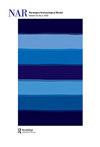七至九世纪英国和爱尔兰的皇家定居点作为权力战略
IF 1.1
3区 历史学
0 ARCHAEOLOGY
引用次数: 0
摘要
纵观现代欧洲历史,学者们一直试图描绘出中世纪早期王国以及王权是如何产生的。他们持久的兴趣在一定程度上与寻找民族起源、声望和合法性有关。五、六世纪在西罗马帝国废墟上建立起来的“蛮族”社会的社会和政治制度,至今仍被认为对塑造中世纪及以后的历史具有重大影响;从18世纪开始,新兴的民族国家根据编年史和古物学家的发现建立了独特的起源叙述。即使在15世纪,学者们也使用早期的历史文献来证明国家在国际关系中的卓越地位(Wood 2013,第11页)。随着现代研究人员对英国南部稀少的文献记录和大量考古发现提出越来越多的批评方法,他们已经不再将移民时期视为主要政治巩固的时期,而是转向关注七世纪和八世纪。比德在他的八世纪早期的《教会史》中描述的王国的原始历史因此变得模糊,但似乎最有可能的是,它们是作为当地团体占领的地区出现的,也许是基于亲属的,这些地区被聚集在一起作为“民间”领土(Faith 1997)。在爱尔兰,它从来不是罗马帝国的一部分,最早的记录提供了数百个王权的证据,这些王权按等级划分,从很小的地方领土到总体的区域政治。文件及其解释的复杂性支撑了一种例外论,这种例外论常常将爱尔兰史学与英国和欧洲史学区分开来。然而,研究人员已经观察到一种合理化的趋势,这意味着王国的总数从七世纪开始减少,所以同一时期在爱尔兰历史上很重要(MacCotter 2008)。本期的两篇文章,分别由Gabor Thomas和Christopher Scull撰写的关于英格兰的文章和Patrick Gleeson撰写的关于爱尔兰的文章,探讨了这一形成时期的考古学方面。这两篇论文都对中世纪早期王国用于合法统治和巩固领土主张的策略提供了有趣的见解。通过在广泛的国际背景下进行讨论,他们超越了困扰20世纪早期中世纪考古学的一些主要障碍,即对当地数据集和国家叙述的关注(有时几乎是短视的)。本文章由计算机程序翻译,如有差异,请以英文原文为准。
Royal Settlements as Power Strategies in Seventh- to Ninth-century Britain and Ireland
Throughout modern European history, scholars have attempted to plot how kingdoms – and consequently kingship – arose in the early Middle Ages. Their enduring interest is partly related to the hunt for national origins, prestige and legitimacy. The social and political institutions established among the ‘barbarian’ societies of the fifth and sixth centuries from the ruins of the Western Roman Empire are still considered highly influential in shaping medieval and later history; emerging nation states from the eighteenth century onwards built distinctive origin narratives from the evidence of chronicles and antiquarian discoveries. Even in the fifteenth century, scholars used early historical texts to justify claims of national pre-eminence in international relations (Wood 2013, p. 11). As modern researchers have brought increasingly critical approaches to the sparse documentary records and burgeoning volume of archaeological finds from southern Britain, they have moved away from seeing the Migration Period as the time when major polities were consolidated, shifting towards a focus on the seventh and eighth centuries. The protohistory of the kingdoms described by Bede in his early eighth-century Ecclesiastical History has consequently grown obscure, but it seems most likely they emerged as areas occupied by local groups, perhaps kin-based, that were brought together as ‘folk’ territories (Faith 1997). In Ireland, which was never part of the Roman Empire, the earliest records provide evidence for hundreds of kingships sorted in a hierarchy from tiny local territories to overarching regional polities. The complexity of the documents and their interpretation have underpinned a kind of exceptionalism which has often served to distance Irish historiography from that on Britain and Europe. Nevertheless, researchers have observed a tendency towards rationalization which meant the overall number of kingdoms diminished from the seventh century onwards, so the same period is important in Irish history (MacCotter 2008). The two articles in this issue, by Gabor Thomas and Christopher Scull on England and by Patrick Gleeson on Ireland, explore aspects of the archaeology of this formative period. Both papers provide intriguing insights into strategies used to legitimate rulership and underpin territorial claims in early medieval kingdoms. By framing their discussions within broadly international contexts, they transcend some of the key impediments that afflicted much early medieval archaeology in the twentieth century, the focus (at times almost myopic) on local datasets and national narratives.
求助全文
通过发布文献求助,成功后即可免费获取论文全文。
去求助
来源期刊

Norwegian Archaeological Review
ARCHAEOLOGY-
CiteScore
2.10
自引率
0.00%
发文量
13
期刊介绍:
Norwegian Archaeological Review published since 1968, aims to be an interface between archaeological research in the Nordic countries and global archaeological trends, a meeting ground for current discussion of theoretical and methodical problems on an international scientific level. The main focus is on the European area, but discussions based upon results from other parts of the world are also welcomed. The comments of specialists, along with the author"s reply, are given as an addendum to selected articles. The Journal is also receptive to uninvited opinions and comments on a wider scope of archaeological themes, e.g. articles in Norwegian Archaeological Review or other journals, monographies, conferences.
 求助内容:
求助内容: 应助结果提醒方式:
应助结果提醒方式:


